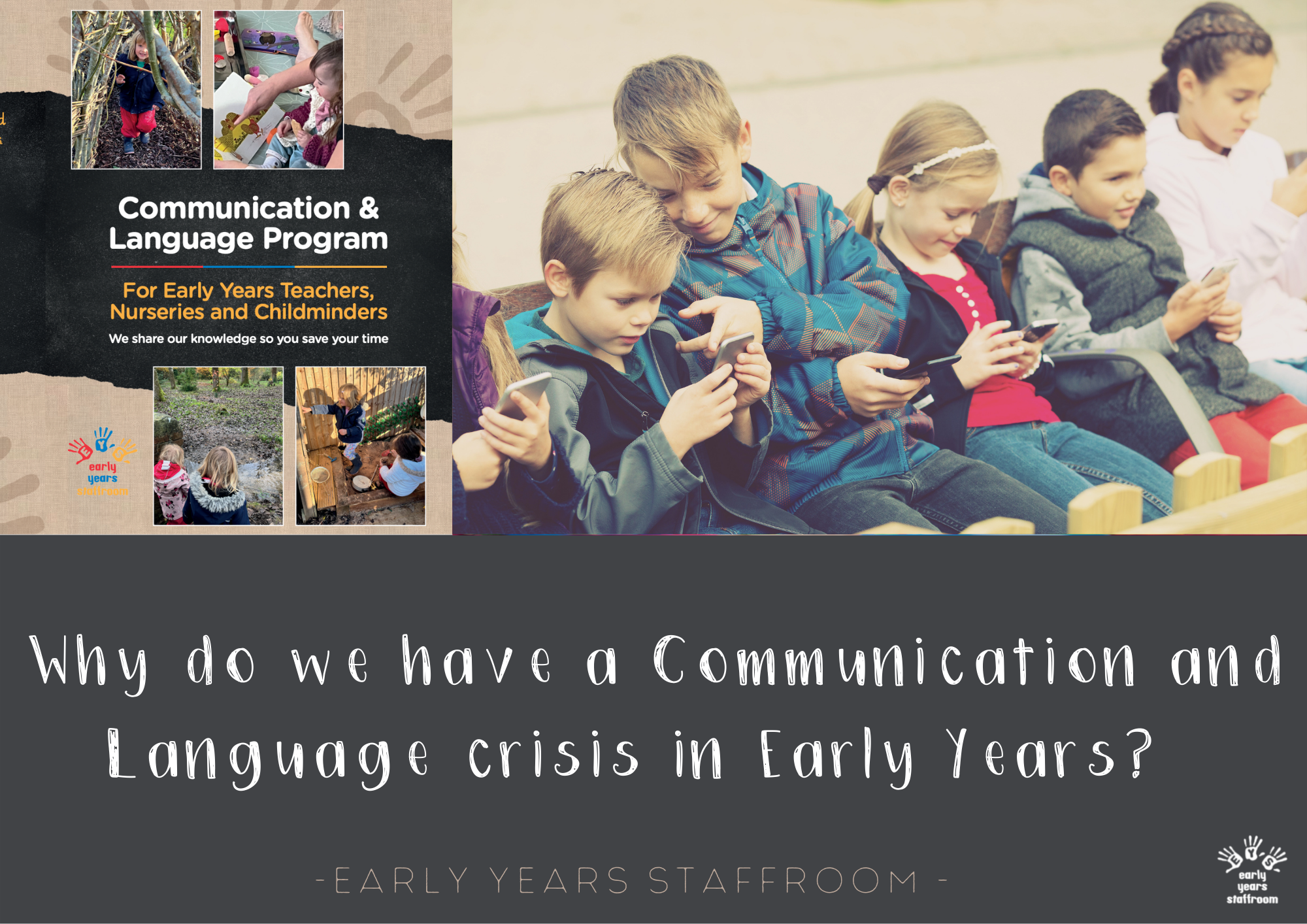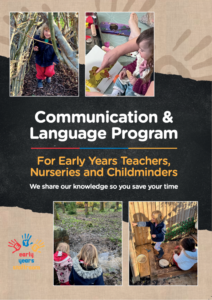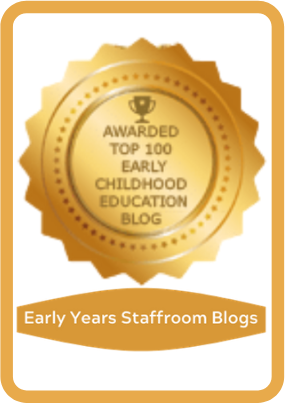Language and Communication
“The early years are the crucial years for making a difference”
(Development Matters 2021)
By Sarah Detheridge
Why do we have a communication and language crisis?
According to The Communication Trust, in some parts of the UK more than 50 percent of children start primary school with poor communication skills – that’s 17 in every classroom.
There are many different factors that can affect a child’s communication and language before they enter an early years setting such as a medical condition, a delayed general development or cognitive impairment, reduced hearing (such as glue ear), a change in a child’s environment such as moving home, or birth of a sibling, lack of stimulation or opportunities for speech, emotional or behavioural problems, family history of speech and language related delays or difficulties or English not being the first language.
Historically there has always been a ‘gender gap’ between boys and girls. The belief that boys will somehow ‘catch up’ later is unacceptable. In the last decade, nearly one million five-year-old boys were found to be not achieving the level expected of them and struggling to follow simple instructions or speak in full sentences, a study by Save The Children found. Gareth Jenkins, of Save The Children said: “Every child deserves the best start in life. But in England, too many children, especially boys, are slipping under the radar without the support they need to reach their potential”.
Is this crisis to do with the factors mentioned above, or is there something else affecting children’s poor Communication and Language? In a digital age, are we becoming too reliant on technology? We are told, when used appropriately, technology can enhance our language and communication skills. Technology’s role in our lives is astonishing. Its effect on the way we communicate has changed the English language forever. People are writing more how they speak and less how they used to write. People are more likely to text than hold a conversation on the phone. While mainstream, digital communication alters language use, it does not eradicate the traditional; it merely sits alongside convention, but whilst our pedagogy is driven by the ‘traditional’ we either need to make changes in our delivery or pursue with our beliefs as to what we know makes us ‘human’ in the way we make face to face connections in our language and communication to each other.
“Children learn and develop more from birth to five years old than at any other time in their lives. If children are at risk of falling behind, the best time to help them to catch up and keep up is in the Early Years” (Development Matters 2021). Therefore, early identification of communication problems is essential to ensure children get the help they need to develop their language skills. However, this has been challenging with the recent Covid-19 pandemic. Many teachers and early years practitioners are noticing the repercussions now in their settings with many children having not been able to interact with their peers and other adults on a regular basis. Findings from a survey carried out by The Early Years Alliance found that nearly half of early years providers believe the gap between disadvantaged under-fives and their peers has grown during the pandemic and worryingly more than half believed that fewer children from all backgrounds were meeting the expected level of early attainment levels in development areas such as Physical, Personal/Social/Emotional, Language and Communication since the start of the pandemic.
Hope therefore lies in the knowledge and experience of practitioners, increased funding with great efforts through initiatives such as the Nuffield Early Intervention programme (NELI) being made to encourage settings to narrow the very evident gaps in children’s language development, training opportunities and having a drive on Language and Communication for this academic year.
Is communication and language the most important area of the EYFS?
Development Matters (2021) recognises that the development of children’s spoken language underpins all seven areas of learning and development. The importance of this area of learning is interwoven throughout the document. It is mentioned on many occasions in different areas of learning, for example ‘engaging with others through gestures, gaze and talk’ (Personal, social and emotional development), ‘Talk about and identify patterns around them’ (Maths) and ‘respond to what they have heard, expressing their thoughts and feelings’ (Expressive arts and design). Research suggests that good communication and language and literacy at a young age has a direct correlation with outcomes throughout school and later on in life. The development of language therefore cannot be viewed in isolation but is hugely important for children’s overall development.
“High quality interactions are recognised as fundamental to the achievement of outstanding teaching and learning in the early years” (Julie Fisher ‘Interacting or interfering, 2016).
How can you nurturing children’s communication and language skills?
The time you spend listening to children and having conversations with them is crucial. By being a supportive, nurturing adult that can model effective speaking and listening, promoting a language-rich environment and encouraging shared-sustained thinking contributes to greater positive interactions, as well as fostering warm relationships. Development Matters suggests many ways we can do this through examples of how we can support children. There are many ways adults can help promote and develop children’s communication and language skills.
At Early Years Staffroom we have developed a brand new Communication and Language program that is filled with ideas for Early Years Practitioners to either dip in and out of or to follow a weekly plan. The activities are suitable for whole groups, or smaller ones for intervention purposes.
Communication and Language Program – Available on our website.
It is widely recognised that establishing effective partnerships with parents can really help children to thrive in the early years, yet for many children the amount of support they get at home will vary compared to their peers. Below are some tips that could be shared with parents to nurture their child’s communication and language skills.
- Encourage eye contact when speaking and listening
- Find a suitable, relaxing time for you to enjoy a story together on a regular basis
- Encourage choice-making
- Take opportunities to engage in pretend-play on a regular basis
- Sing Nursery Rhymes and action songs often
- Tune into environmental sounds
- Take them for a check-up if you have any concerns with their communication and language development
- Speak to your child’s key person if you have any concerns
- Play naming games
- Help by expanding on their words and sentences
- Give simple instructions, or encourage simple tasks around the home
- Make labels or flash cards displaying pictures of simple household objects
Guidance and further resources:
Closing the Word Gap, Oxford University Press https://bit.ly/2JHqtPP
Development Matters (2021) https://assets.publishing.service.gov.uk/government/uploads/system
Ican.org https://ican.org.uk/i-cans-talking-point/professionals/tct-resources/
https://ican.org.uk/i-cans-talking-point/professionals
Interacting or interfering? Improving interactions in the early years by Julie Fisher. Practical guidance on how to improve interactions https://amzn.to/2L83YXl
Nuffield Early language Intervention https://www.teachneli.org/what-is-neli/
Statutory framework for the early years foundation stage (2021) https://assets.publishing.service.gov.uk/government/uploads











